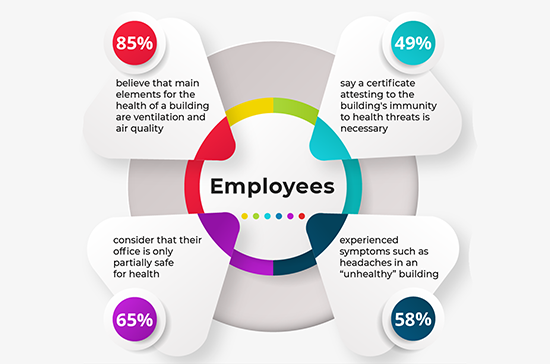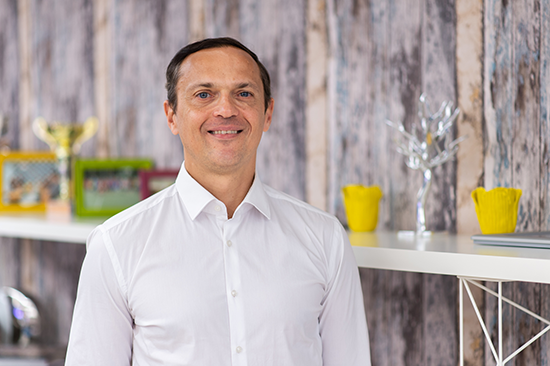More than 65% of Romanian employees consider their office to be only partially safe
Over 65% of Romanian employees consider that their office is only partially safe for health, and 17.1% say that it is too little or not at all safe in the context of the pandemic, shows a survey initiated by Genesis Property among 1,208 employees across the country in June. Only 17.5% believe that the headquarters of the company they work for is very safe for health. In this context, employees want more sanitary measures so that the building where they work becomes "healthy" in anticipation of a full return to the office.
Working in an unhealthy environment not only poses risks from the spread of viruses and bacteria, but it influences both the way employees work and the perception of their office. Since the beginning of the pandemic, employees who worked in an "unhealthy" office say they have sometimes experienced a reduced ability to concentrate (65.7%), had lower performance (61.8%) and also experienced symptoms such as headache (57.9%) or drowsiness (45.8%).
For nearly three-quarters of respondents to the Genesis Property survey, a healthy building protects people's health through complex sanitary measures, and more than two-thirds believe that the health of a building is primarily based on air and water filtration systems.
”Covid-19 has changed not only the way employees perceive their office, but also their concern for the health of the building they work in. They are now much more attentive to the sanitary measures in the building, and the fact that only 17.5% see their office as very safe shows us that there is still much to be done to increase the immunity of indoor spaces where we spend most of our time. A large majority consider facilities such as efficient air and water filtration systems to be essential. These systems are part of a comprehensive panoply of 135 measures included in the IMMUNE Building Standard™ for healthy buildings", says Stefan Tudos, Vice President of Genesis Property, responsible for managing the client portfolio.
The main elements for the health of a building are ventilation and air quality (84.9%), natural light (80.1%), temperature level (65.3%), noise level (63.7%) and amount of dust in the air and on surfaces (60.7%). Most employees believe that more safety and protection measures are needed to feel safe in the building where they work, such as rapid and efficient emergency response protocols (75.31%), installation of water and air filtration systems to limit the spread of viruses and bacteria (76.69%) and a certificate attesting to the building's resistance to health threats (48.7%).
135 measures for healthy buildings
In April 2020, Genesis Property initiated the IMMUNE™ standard, a coherent index of standardized measures, grounded in science, designed and developed to assess and certify the resilience of the built environment. IMMUNE Building Standard™ is based on a practical investment in a Healthy by Design System (HbDS), incorporating a network of devices and available technologies, specialized equipment, dedicated personnel, and new amenities, promoting operational and health rules focused on the physical space where occupants and visitors interact.
The standard proposes 135 coherent measures empowering the building operator to verify and adjust the condition of the building to a healthy performance level, providing occupants with a healthy experience. There are currently several office and industrial buildings in the world that have implemented the standard measures and obtained certification for "healthy buildings", with building H3 in West Gate Business District, Romania being the world’s first building to achieve the highest IMMUNE™ label.
The Genesis Property survey on employees' perceptions of the health of offices was conducted in June 2021 through the iVox platform, on a total sample of 1,208 internet users from all over the country. Almost 50% of the participants are women, about 70% are over 35 years old, and 43% have a net income higher than 3000 lei.










